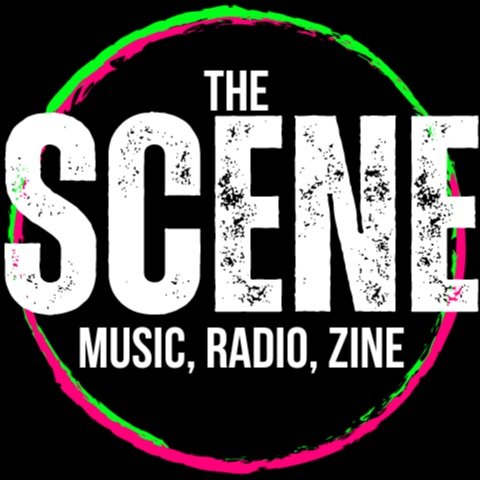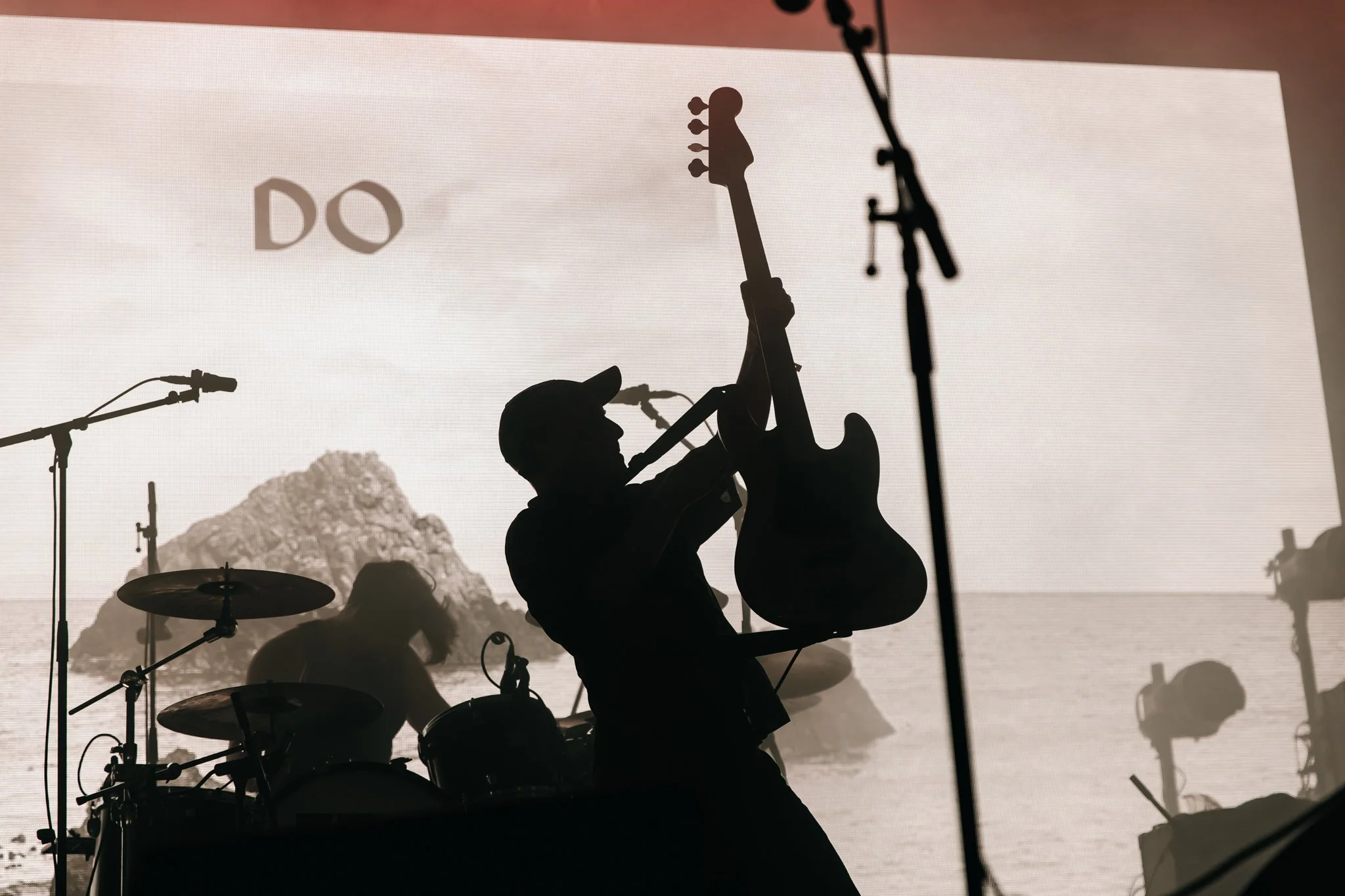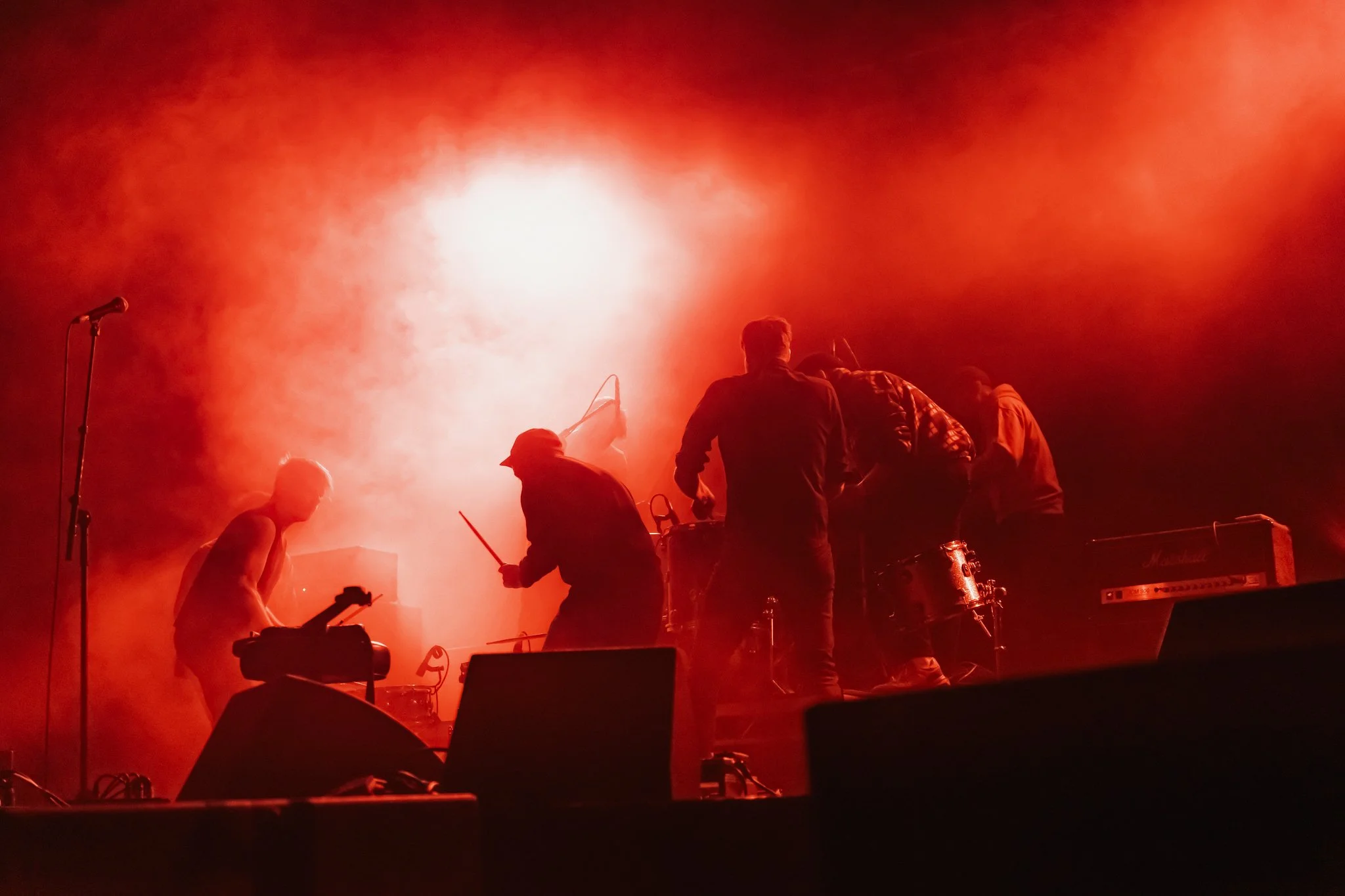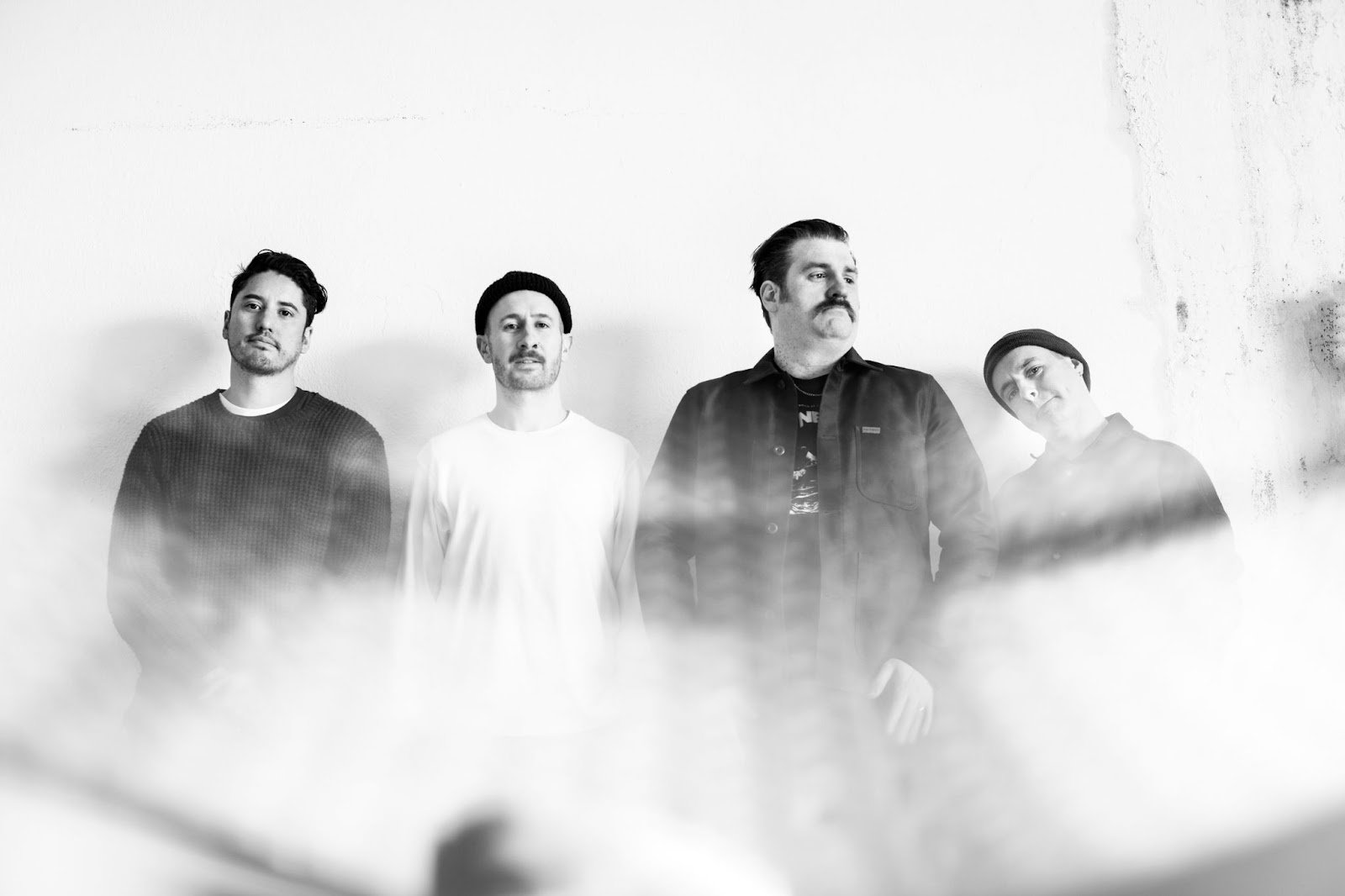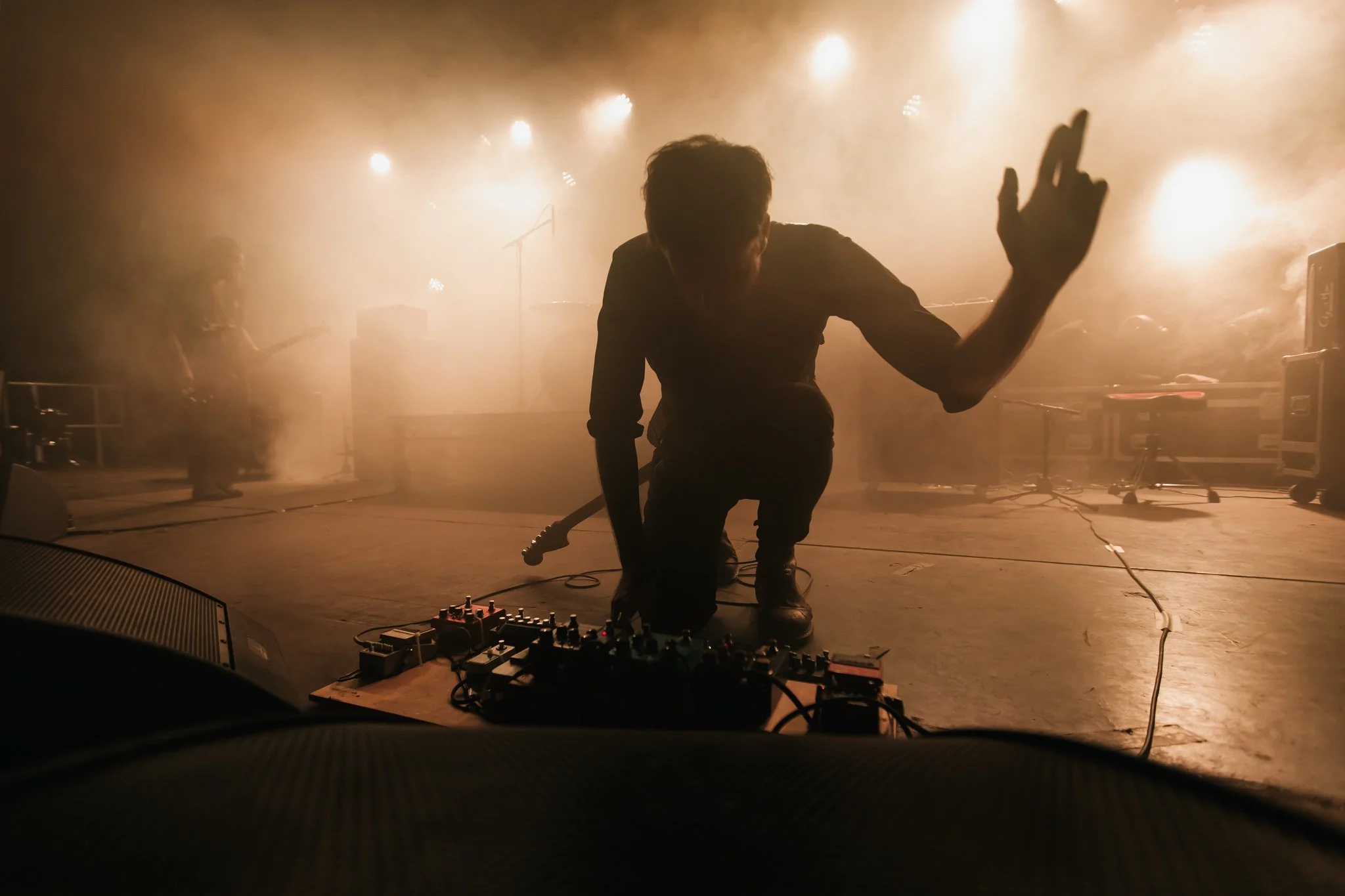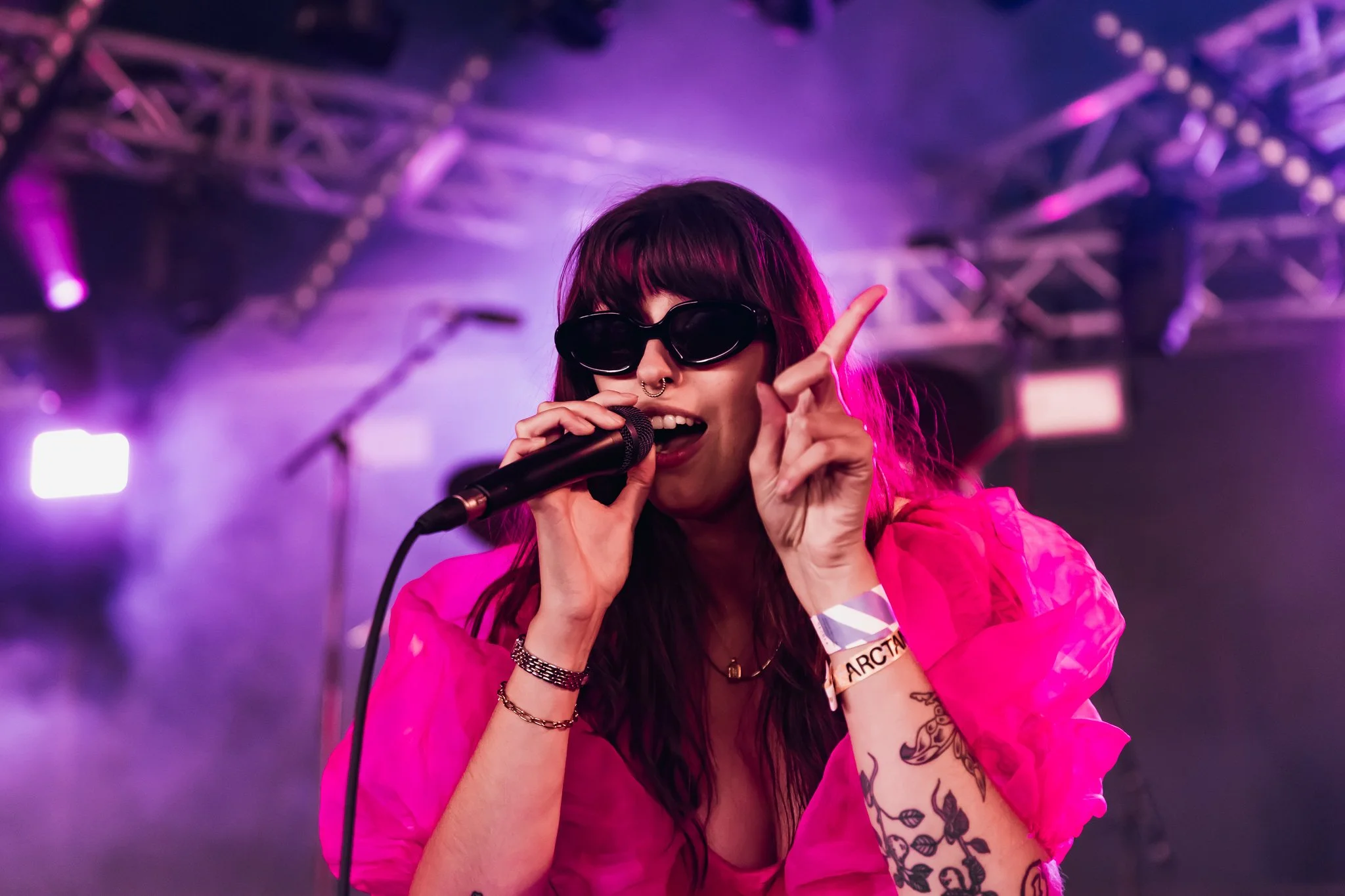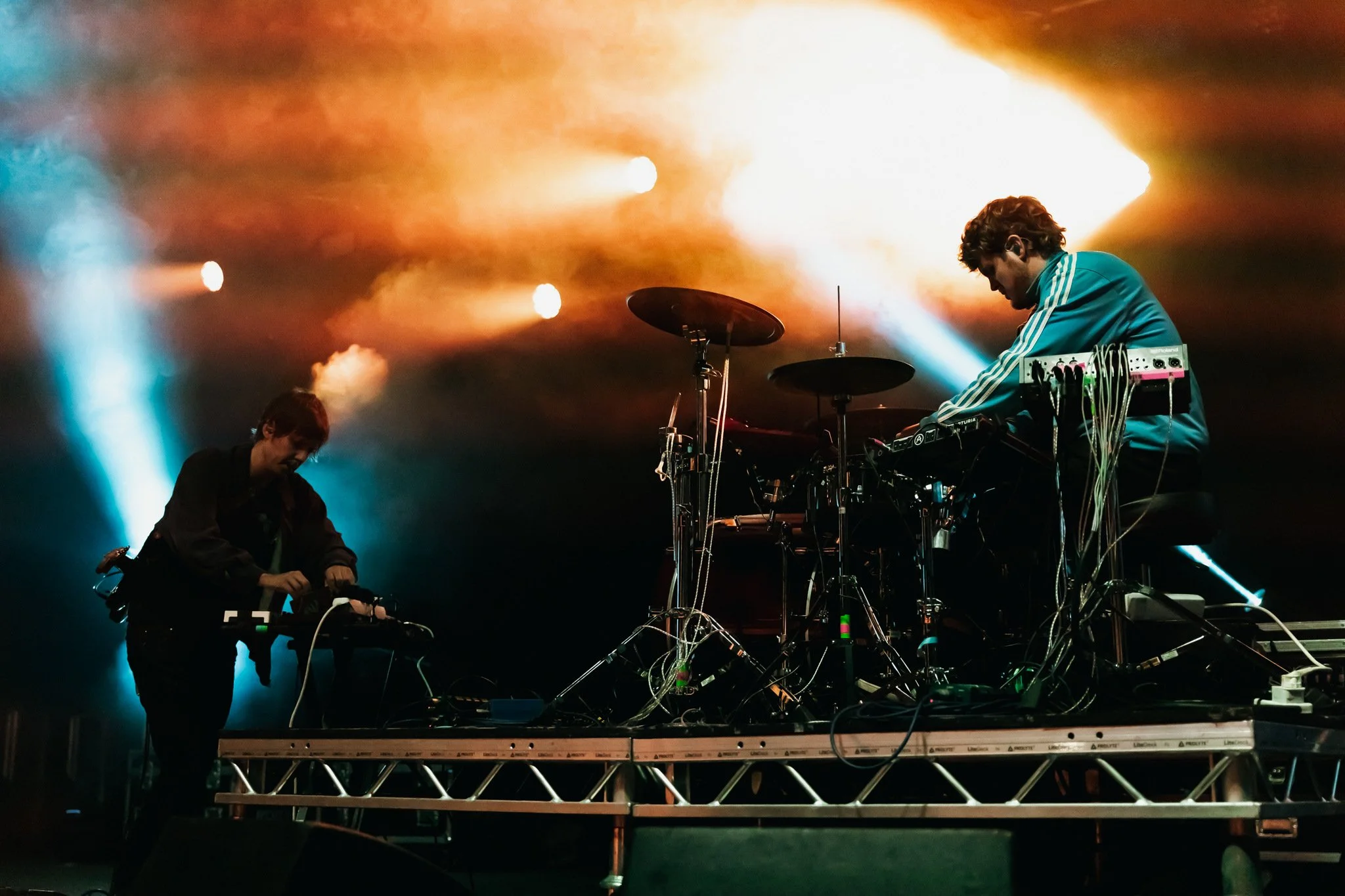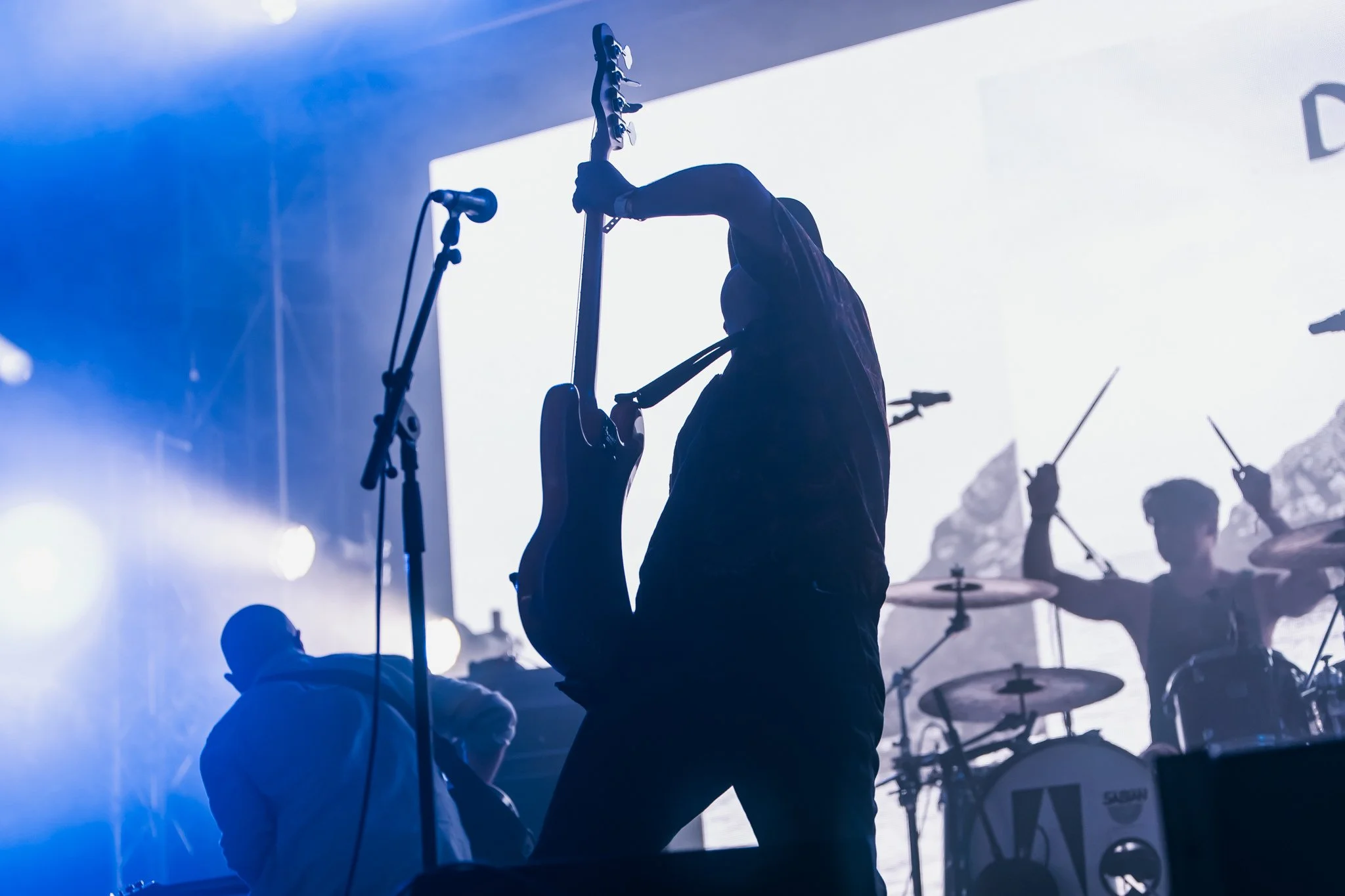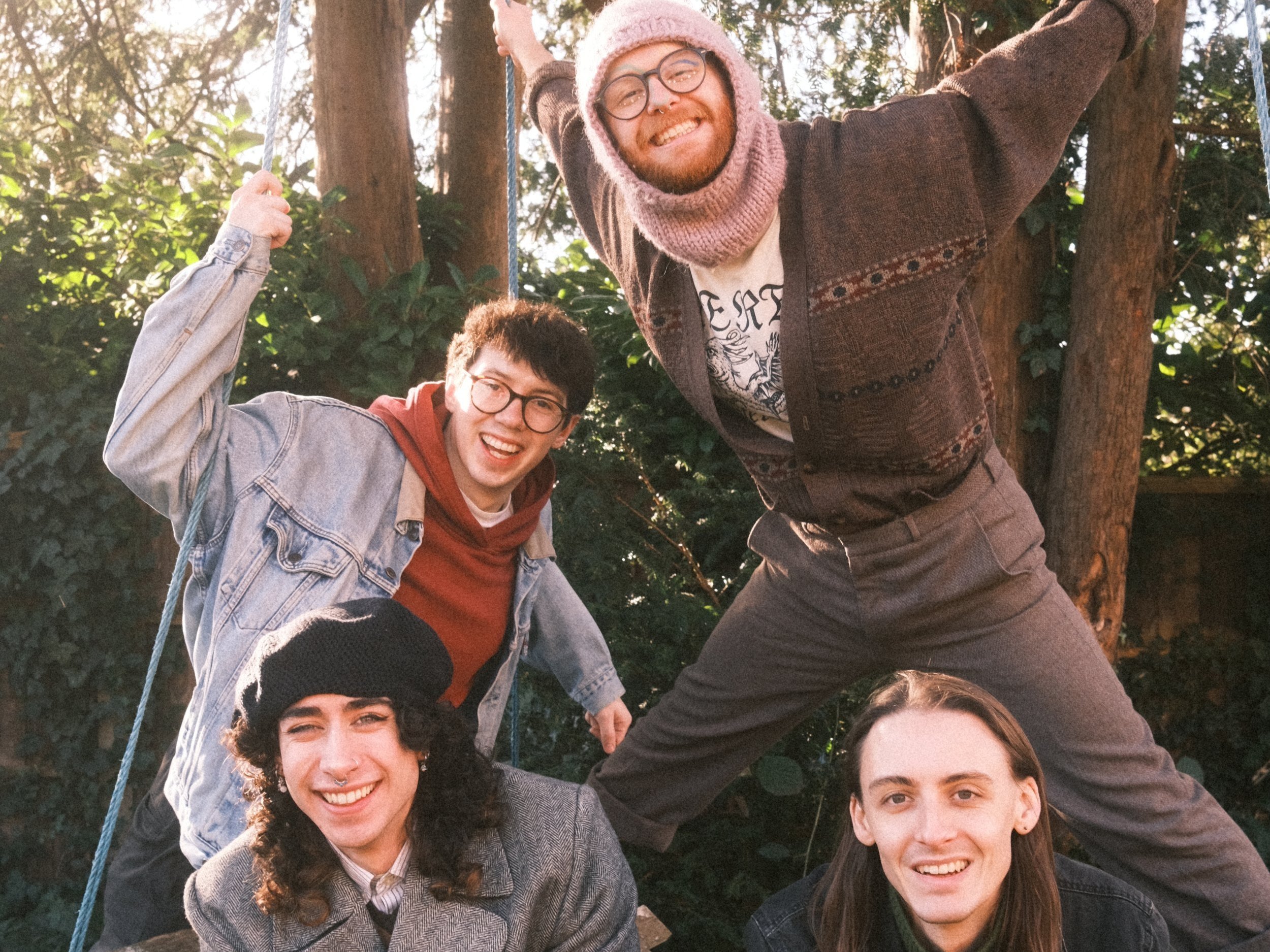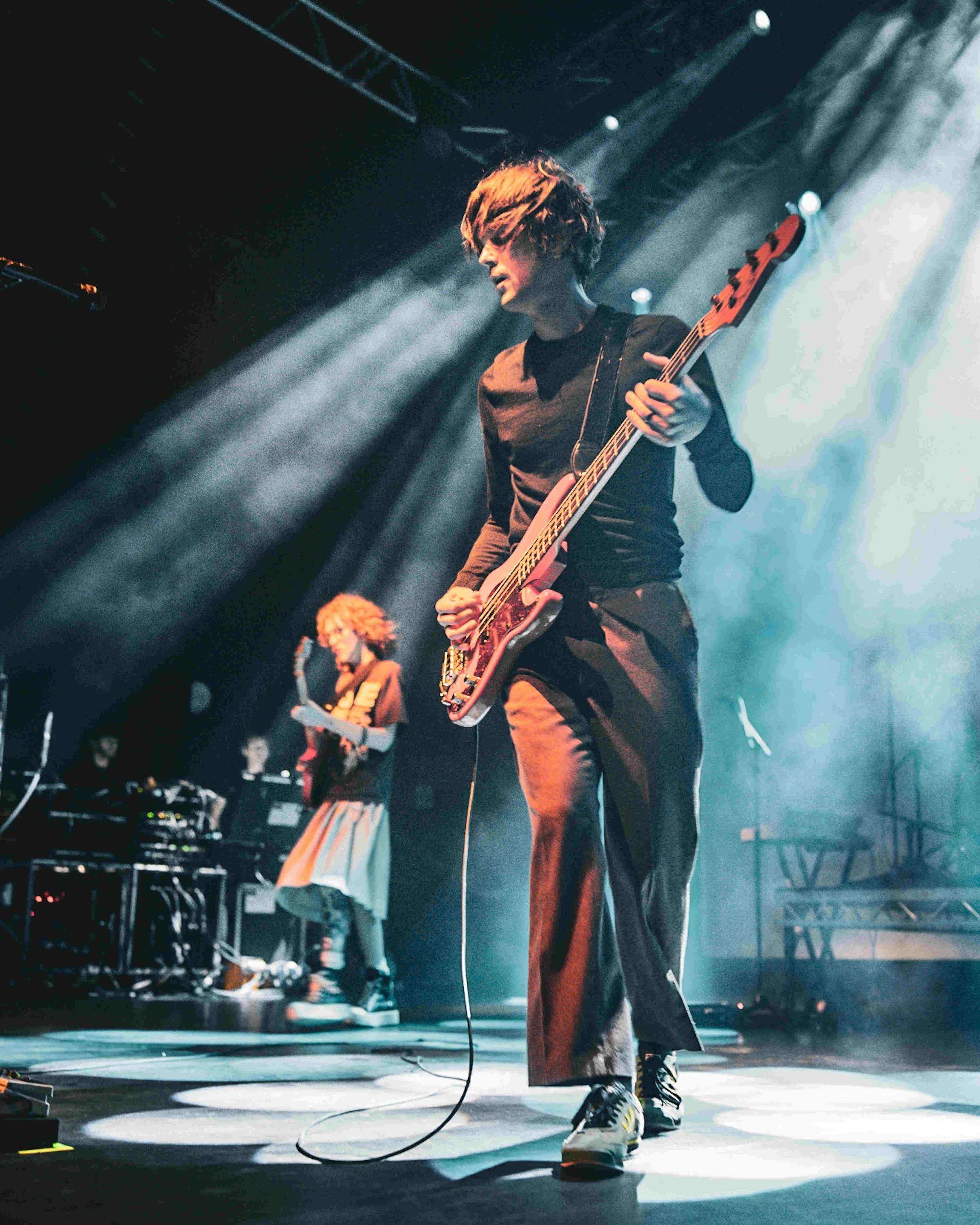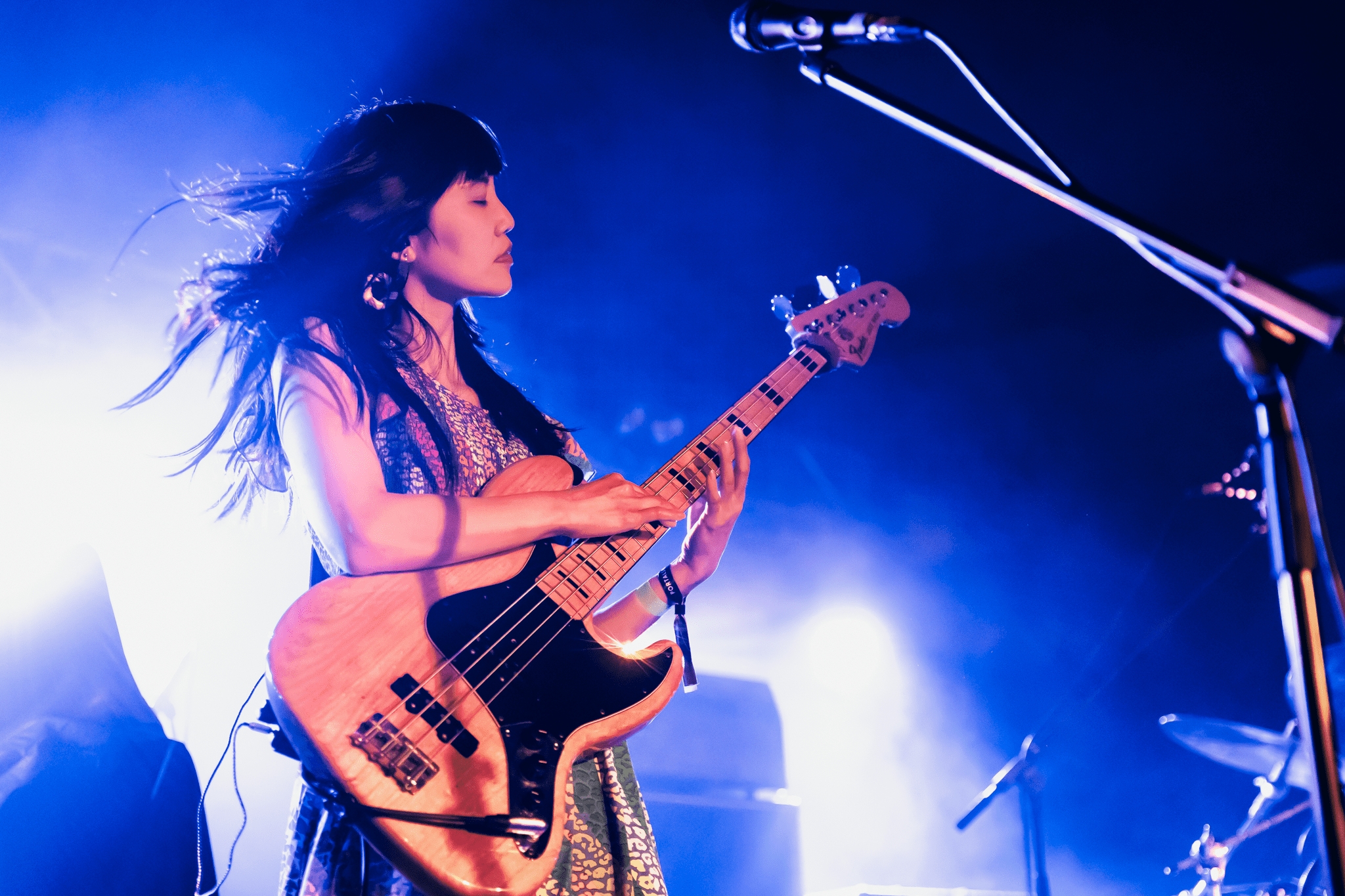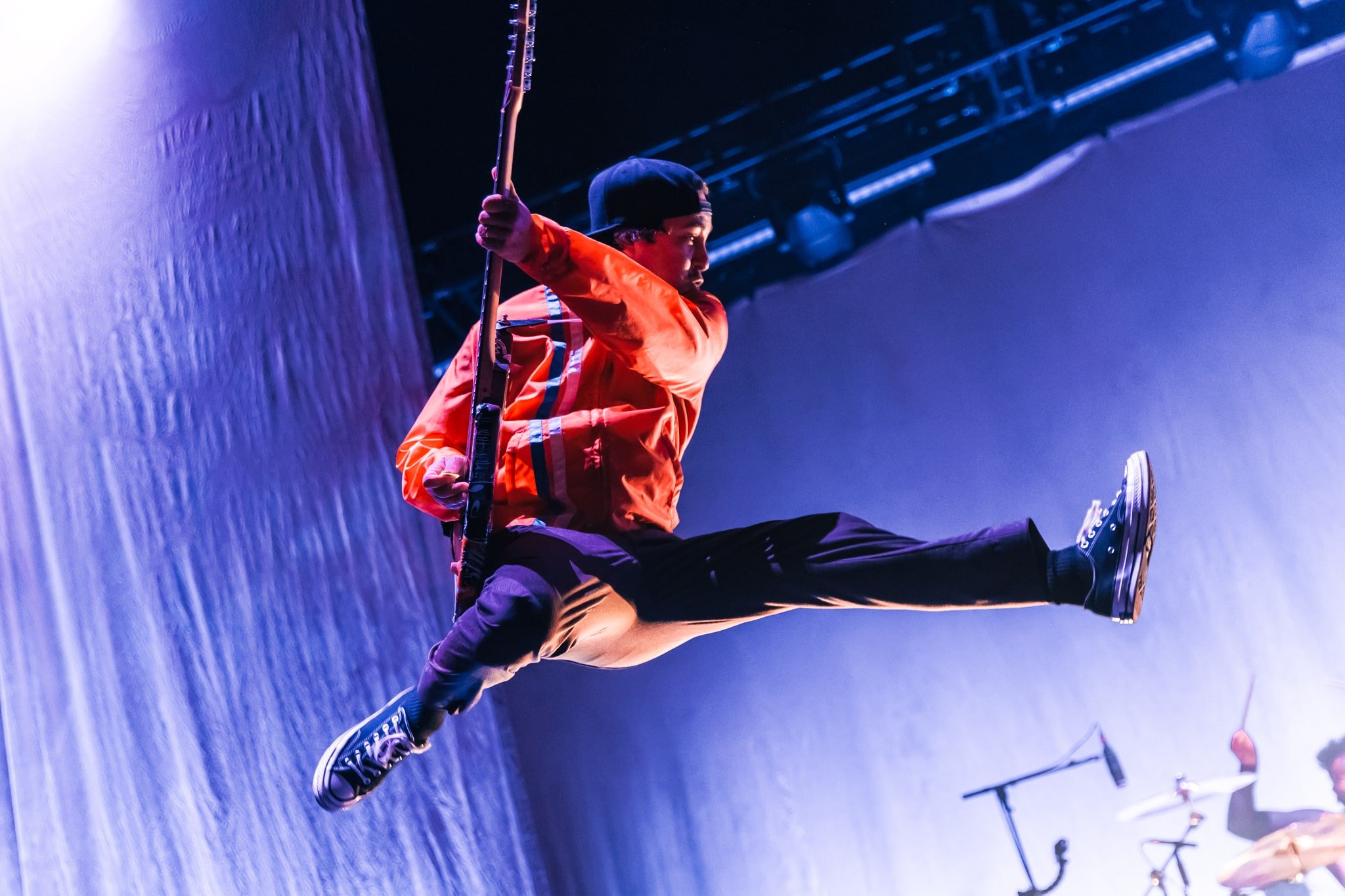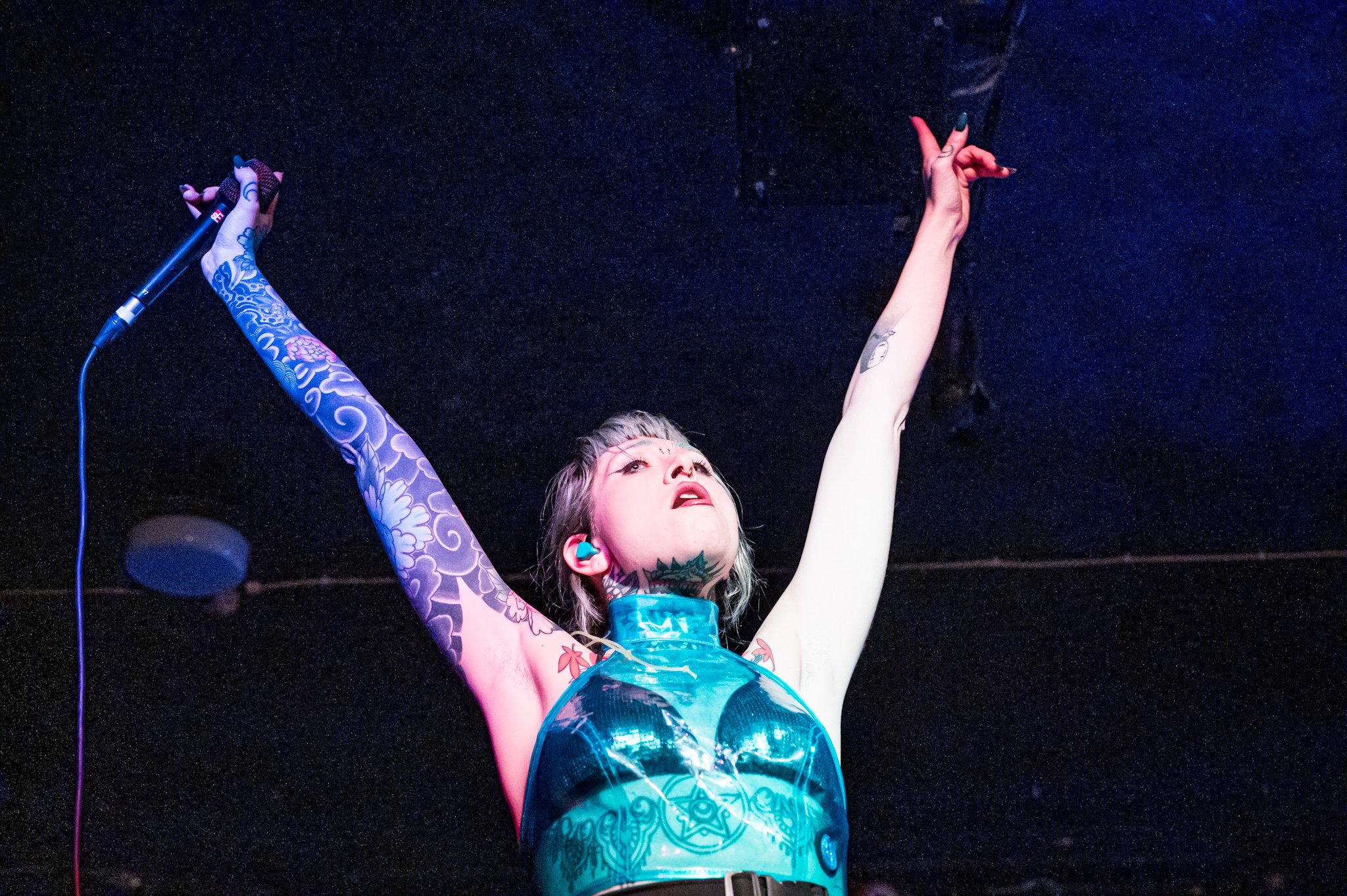Interview: And So I Watch You From Afar @ ArcTanGent
And So I Watch You From Afar by Jez Pennington
In the midst of the electrifying atmosphere of ArcTanGent, we had the pleasure of sitting down with Rory Friers and Chris Wee of And So I Watch You From Afar (ASIWYFA). With two decades of musical innovation under their belts and fresh off a 20-year anniversary tour with Caspian, the band has not only witnessed the evolution of their sound but also that of the music scene itself.
Having just released their latest album, Megafauna, which has been hailed as their most mature work to date, ASIWYFA reflects on their journey, the impact of the pandemic on their creative process, and the unique power of instrumental music. Join us as we delve into the band's thoughts on the communal experience of live shows, the influences behind their latest record, and what they're currently listening to as they continue to push the boundaries of post-rock.
Thank you so much for your time today! Really incredible to be with you and our first interview of the festival. How is your festival going so far, you played last night?
Person: Chris: Yeah, it's lovely. Usually, we're in and out on the day and don't have much time to actually absorb the festival. So this is a lovely change where we get to mill about and be punters and watch bands. This is great. Last night was pretty intense. The crowd was insane. It was a really great experience.
Our mate was saying that it felt very communal, celebratory, emotional—just good.
Rory: A lot of people letting a lot of stuff out together. Including us.
I’ve been reflecting a lot in the lead up to this weekend about how fascinating it is that instrumental music can evoke such deep emotions, particularly without that lyrical guide. I come from a symphonic band background, so no stranger to storytelling through instrumental composition. But I wonder if you have any thoughts on why this instrumental space hits people so profoundly?
Rory: I think, exactly what you alluded to there, which is if there's nothing prescriptive over the top of any sort of art, then there's power in that. Sometimes, I think we get more credit than we deserve for the meanings people find in our music. But really, we're just creating a little environment for somebody to see themselves reflected in some way. And if there are no words to direct your thoughts or distract you, then people can find whatever it is they need in the music.
Chris: If you look at last night’s show, you’ve got a few thousand people, each with their own interpretation of what the music meant to them. Whereas with lyrical-based stuff, it’s probably more narrowed in that regard.
And So I Watch You From Afar by Jez Pennington
Even more accessible. You can truly put whatever you want into it. Amazing. So, this is a special year! It’s the 10th year of ATG, but you also just finished a 20-year anniversary tour with Caspian. How are you feeling?
Rory: We’re feeling good. Yeah, I can’t believe it’s been 10 years since we first played this festival—11 years technically with that COVID gap, you know. And it’s surreal to think that the band has been around for so long. But honestly, we’re in a good place. Everything post-COVID has been about soaking in the experience, enjoying the moment, and savouring every little thing we get to do. Being back in the States was incredible. Releasing a record, playing these shows—yeah, we’re just really trying to enjoy every bit of it.
Chris: The tour with Caspian was a real life-hammer moment for all of us. We've known those guys since we first met back in 2010. We’ve bumped into each other at various shows over the years, but this was the first time we actually decided to put a tour together. It was a lovely experience. Those guys, I think arrived today, so we'll be seeing them. It’ll be like a little tour reunion two weeks after the fact.
Given that you’ve been together for 20 years, do you think that your experience now allows you to look back and simply enjoy the tour for what it is? Is there something about the post-pandemic era and significant societal and cultural shift that’s created a noticeable increase in appreciation, openness, and willingness among both artists and audiences? I’d love to hear your thoughts on that.
Rory: I think that’s really true. Certainly, from our perspective as a band. In the early days, you’re so on this mission to get somewhere. You’re not quite sure where or what it is, but everything you’re doing is just—soon as it’s done, it’s behind you, and you’re always racing, racing, racing. Chris was just saying, there’d be times we’d be in the middle of putting a record out and I’d be talking about the record we’re writing, the one that’s yet to come, because I was just so focused. The pandemic probably helped realign or refocus what really was going on. And suddenly, we’re here, playing shows, we have music people want to hear—this is something to be enjoyed. We need to stop worrying about trying to get to wherever is next. We’re just really having a real blast at the moment.
Speaking of albums though, you did just release a big album last week, ‘Megafauna’. I understand that it’s a bit of a love letter to Portrush and Belfast? And I was wondering how those places influenced the sound and the themes in the album?
Chris: We grew up on the north coast of Ireland. That’s where we cut our teeth; learning instruments and starting bands. From that, we started putting on little DIY shows. That coastal scene sort of nurtured us—all the music and skateboarding and stuff—that was our little niche during our formative years growing up. As we looked further afield, as we got out of our late teens and early 20s, we all sort of moved to—did we move to Belfast for the band? As the band was in its very early stages, that then became the place where the band really took root.
Rory: Where we grew up—trying not to further sound old—but it was kind of pre-internet. It was “waiting three days to download a song off Limewire internet” kind of era. So, you’re growing up in somewhat of isolation. The title of the album, Megafauna, is something that happens when a species is closed off from others and evolves in its own kind of strange way. I think we always felt a bit like that. When we went to Belfast, we definitely stuck out a bit, you know, as weird country boys who’d come up with our own little system of playing our instruments or writing music. You were exposed to far fewer films and music at the time, so you held onto these things with all your heart and soul. It might have been like 50 records that comprised your entire experience of who you are and what you write. So, yeah, in answer to your question, it definitely did shape us and has done ever since, I think.
You also recorded the album in just one week. What was the atmosphere like in the room? Was that timeframe intentional?
Rory: Yeah, we just booked that in, really.
And So I Watch You From Afar by Jez Pennington
Chris: We had bumped it a couple of times, once or twice maybe, in terms of the actual recording date. But it was definitely the most prepared we’d been or the most satisfied with how everything was before the recording. There were times in days gone by where we were in the studio and a song didn’t feel finished. Whereas with this album, we allowed everything the time to settle in. So when it came to actually recording the parts, it was a no-brainer.
Myself and Ewan recorded the bass and drums together, and it was just take after take of really getting in the room, warming up, getting comfortable, and running takes. Previously, it might not have been as comfortable as that. I think that really showed just how bedded in the tunes were and how happy we were with them.
Rory: Yeah, actually, myself and Ewan filmed the whole experience. I’ve been going through the footage, and I’m reminded of how all four of us in the room, at all points, are each so familiar and intimate with everybody else’s parts. It was really collaborative, and it was very conversational. Very natural and relaxed. We knew what we were trying to do. Whereas, as Chris said, there have been times when we’ve gone into the studio with a bunch of ideas and felt like we still needed to turn them into something. But this was just…as you’ll hear on the record, a guitar on the left, a guitar on the right, drums and bass down the middle, and that’s pretty much it other than a few smatterings of other instruments.
Chris: This album was just about capturing the performances, really, because all the work had been done. It was just get in, get settled, and get the best performances.
Rory: Of all our albums, this is the one that sounds most like our band. If you come and hear us writing music, the way we experience it most is in the rehearsal room, over and over. This record is what it feels like to be in the band, more than any other record we’ve done.
Megafauna is being heralded a bit as your most mature work to date. Do you think it was this preparedness that contributed to that, or knowing what you wanted to say in this piece?
Rory: I think it’s partially the culmination of writing a lot of music together over many years. We’re experimental by nature, we’ve tried and done lots of things, and I do think experimenting in general is something that should be encouraged and done. And as we’ve done this together over the years, your instinct reminds you how to find the edge and I think we understand where that edge is for us. That's usually where the most exciting stuff happens in all disciplines of creativity. So I think we can see that from a band perspective and from our individual perspectives as well and what we can each do as players. There’s was definitely a zen feeling going into this. Not to say that it wasn't a pain in the arse writing some of the songs.
Chris: As well as that, we consciously decided not to put any pressure on ourselves in terms of a deadline. We wanted to allow ourselves to keep writing until we felt we had the album we wanted. That allowed us to explore stuff, to tear up ideas if they didn’t feel right, work on a tune that felt right, then maybe leave it for a few weeks to work on other stuff and come back to it. If it still had the thing we needed, we’d keep it. There was no rushing around. Time was a big factor in how happy we are with how the album turned out.
Really thoughtful reflections, I could stay chatting for a long time about your approaches. In the interest of time, what are you listening to right now?
And So I Watch You From Afar by Jez Pennington
Rory: I’ll have to check my Spotify. You know, what I listened to loads in America was the soundtrack for Past Lives by Daniel Ronson and Christopher Bear from Grizzly Bear. It’s a really beautiful film score. And…Brìghde Chaimbeul is an incredible pipe player from Northern Ireland. And I’ve been listening to Blue Whale.
Chris: I was introduced to Catherine Wheel by Caspian on the previous tour. They are a band that kind of passed us by.
Rory:
Yeah, I’ve listened to a bit of them. I’ve also listened to loads of country music. Cal Joss made me a playlist of some old American country music.
Got my Shania Twain tshirt on today!
Rory: Yes! Saw Shania Twain at Glasto a few months ago!
I did not, but she was my first CD. She’s the best.
Rory: She’s special.
That she is. That’s all I’ve for got us today. Thank you so much for your time, cannot wait to see you play this weekend.
Catch And So I Watch You From Afar as they move from ‘Megafauna Summer’ into ‘Megafauna Autumn’ with a UK tour, hometown Xmas album launch extravaganza and more touring announcements to come!
